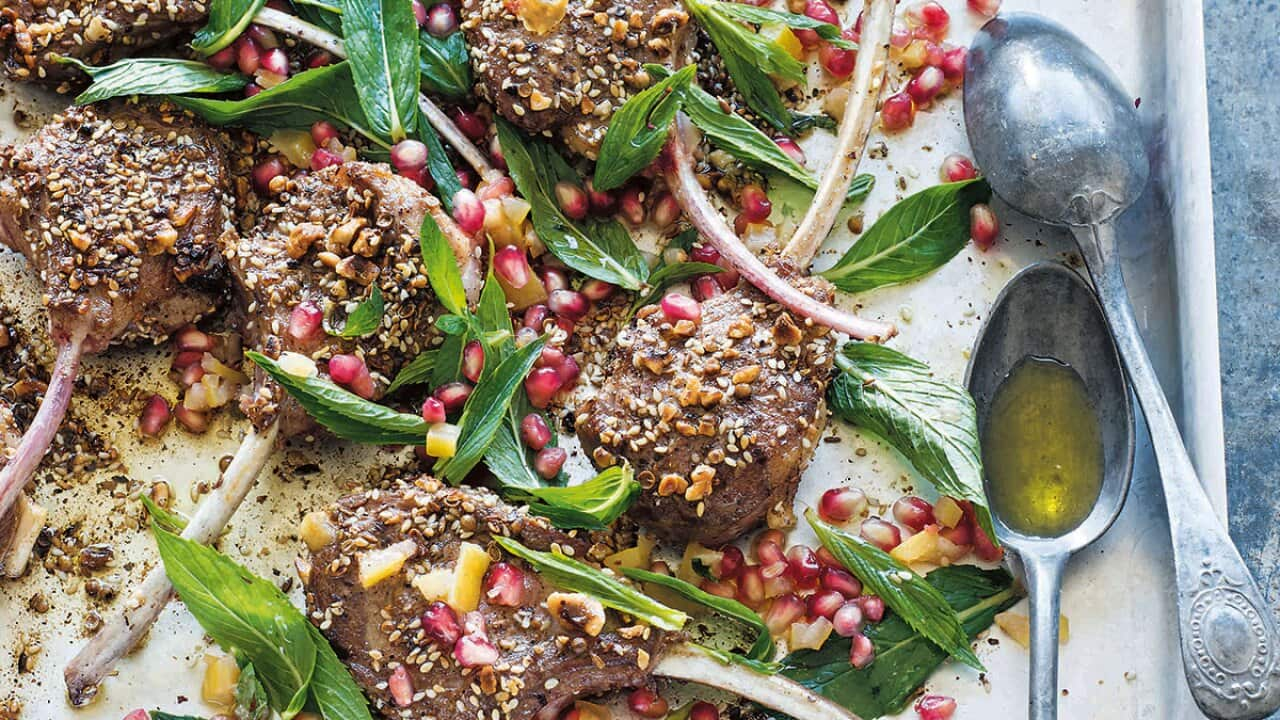Falafel was everywhere when Aida Shehata lived in Cairo, Egypt. "It's easily accessible at every corner and at every shop," says Shehata, who now runs food business Felfela with her family in Sydney.
The sizzling tempo of the patties being deep-fried was a familiar soundtrack at home, too. In Egypt, is formed from mashed broad beans (whereas other Middle Eastern countries use chickpeas), and her family's recipe was passed down over multiple generations.
Shehata explains, "Mum got it from her mother, so my grandmother used to make it."
So when Shehata arrived in Sydney in the late 1960s, at age 10, falafel connected her with her roots. Her mother would transport her own falafel mix to church gatherings for the local Egyptian community in Marrickville. Here, the family would deep-fry the patties to serve other churchgoers.
However, prepping the broad beans beforehand – soaking and shelling them – was a laborious task and her mum needed back-up.
"It was a family affair, we had to peel it, to get it ready for her," says Shehata.
MAKE THIS SBS RECIPE

Egyptian falafel
Shehata's daughter Stephanie adds eating falafel at church is still a tradition. "People usually get together after the mass, because they're usually fasting for communion and they eat together."
While Stephanie's father Sherif is a chef (he met her mother, Aida, while cooking at in Paris), it's her mum who is chief falafel-maker.
She ensured there was always a falafel-stocked freezer that Stephanie and her sister Natalie could turn to at any time when they were growing up.
Their parents worked long hours – in the 1980s, they ran a French-Egyptian restaurant called La Petite Maison in Leichhardt – so falafel acted as "emergency food" for the kids. Consequently, they became expert defrosters – and enjoyed warmed-up, crisp bites of the broad-bean patties. The falafel-making tradition that began in Egypt also continued in Sydney.
The falafel-making tradition that began in Egypt also continued in Sydney.

Aida (left) and Sherif Shehata. Source: Kitti Gould
"Growing up, you'd watch mum make the actual mix," says Stephanie. "I remember peeling the beans with her. We'd watch her put everything into the blender and mash it all up." She'd flavour it with spices, then drop falafel into sizzling oil, filling the kitchen with the fragrant smell of patties crisping and cooking.
Now, not only are the daughters well-versed in shaping and frying falafel, but the grandchildren have also aimed to produce their own from scratch. But their enthusiasm for crushing broad beans hasn't been entirely successful.
"When they do get involved in it, the whole kitchen ends up being covered in green falafel," says Stephanie, of her niece and nephew's messy, house-staining attempts. "They just sit and watch now."
In the meantime, Stephanie considers herself a fourth-generation falafel-maker and a custodian of the family recipes. But that doesn't mean the methods and ingredients are rigidly set in stone.
"We've tweaked them a little … We've got the kale and chilli-stuffed falafel, which is my mum's little invention," she says. "Every generation has put their own twist on it."
Six years ago, the Shehata family decided to bring their falafel mix and deep-fryers to , selling their food under the name every weekend. The menu included other vegetarian Egyptian staples, such as , which is also flavoured with broad beans.
The stall was so popular that the food often sold within four hours – so anyone planning a late lunch would miss out. Felfela even attracted an international fan base, with tourists from New Zealand, Spain and Brazil telling their overseas friends – who would then head straight for the falafel when they finally made it to Sydney.
In March this year, though, the COVID-19 lockdown led to the market closing temporarily. But Felfela wasn't about to go on hold.
"Three weeks after the restrictions came into play, I put everything online, it's been going ever since," says Stephanie.
Now, people across Sydney can and have it delivered to their door. You can choose from cooked falafel or channel those early Egyptian church gatherings and pick the raw falafel mix. The special kale-stuffed version is available, too. There's ful, of course, and other meat-free dips, salads and snacks, too.
"Everything is vegan except for the [rice] pudding, but we're currently experimenting with how to make that a dairy-free option," says Stephanie. Most of the menu is gluten-free, too – except for the (an Egyptian salad is offered as an alternative).
While vine leaves, hummus and baba ghanouj have been popular, it's no surprise that the signature item – falafel – continues to be a hit.
After all, that's how it's always been in the Shehata household.
We've been eating falafel since I was two!
"We've been eating falafel since I was two!" says Stephanie. "I'm now 34."
She considers it the Egyptian equivalent of a meat pie.
"You're hungry, you don't know what to eat, you don't have time, you heat up a meat pie," she says. "It's your emergency food. The same thing happened with falafel," she says.
And don't worry – the childhood comfort of a falafel-stocked freezer and the adult task of making kilos of it for Felfela has in no way made Stephanie sick of the Egyptian staple.
In fact, three decades on, her appetite for the broad-bean patty remains strong.
"You could always eat falafel," she says.
NOTES ON EGYPTIAN FOOD

Tasting sweet memories in this Egyptian rosewater dessert






